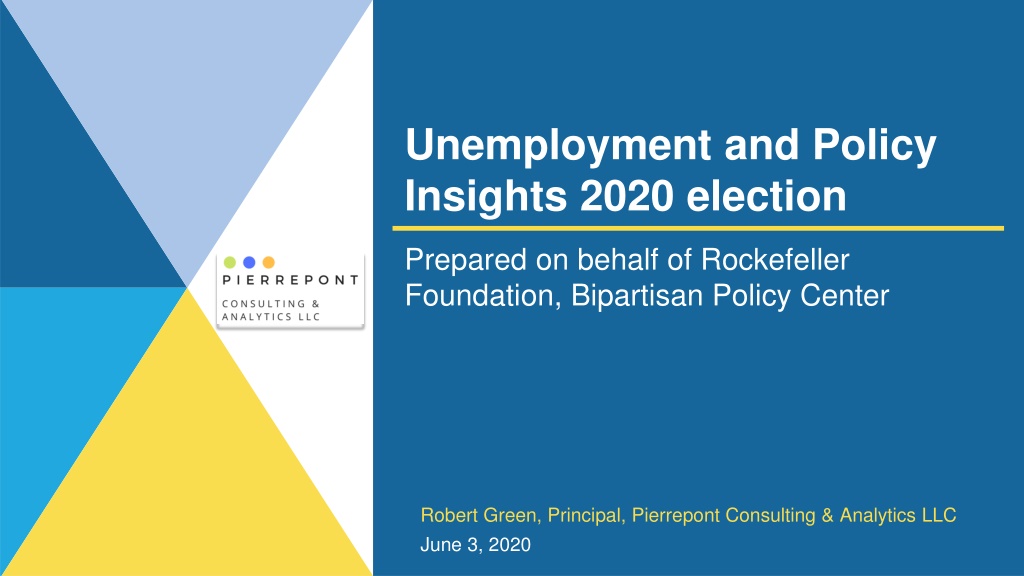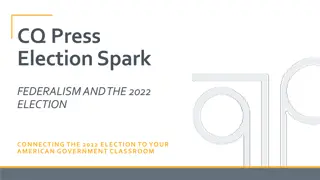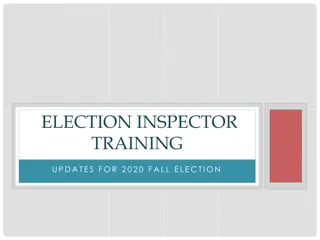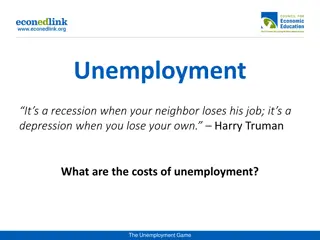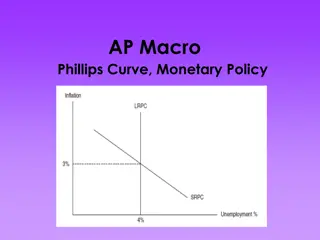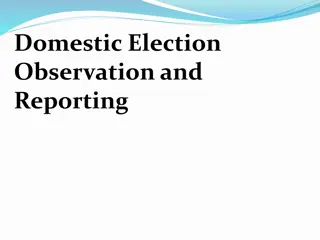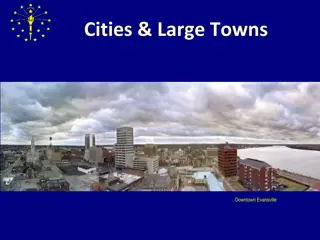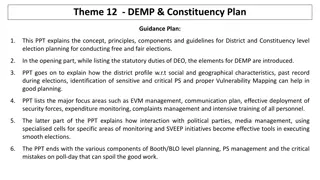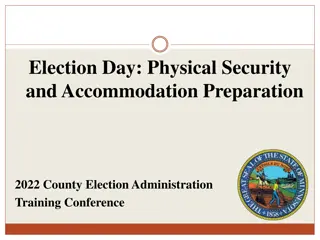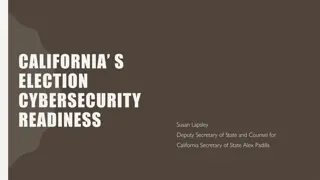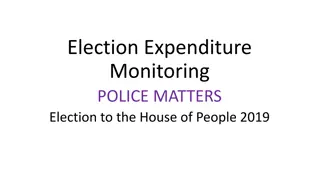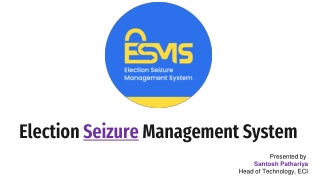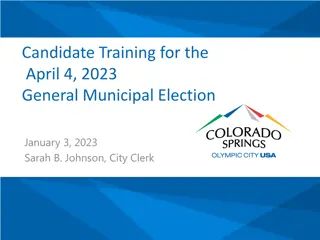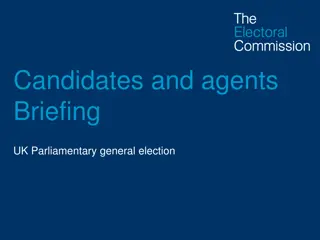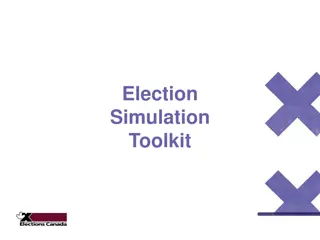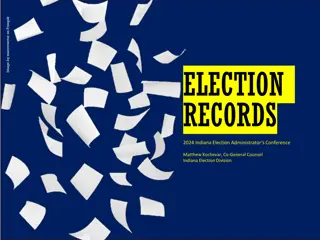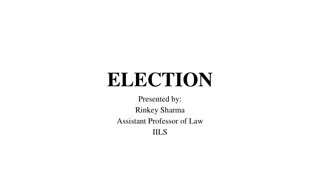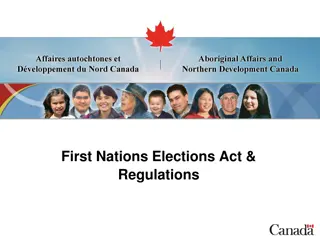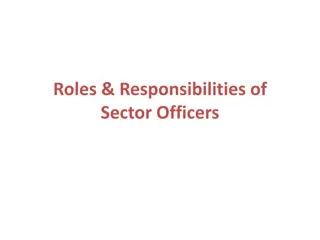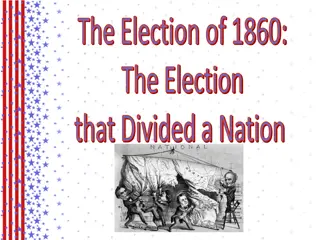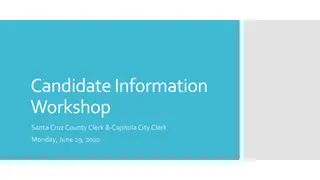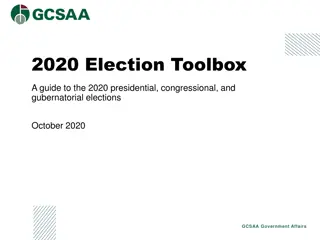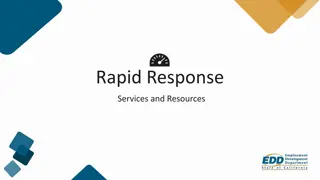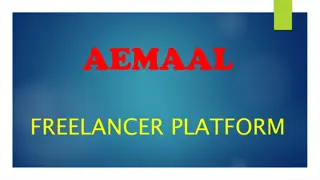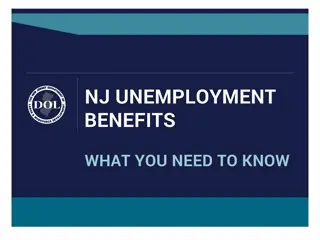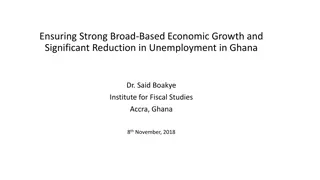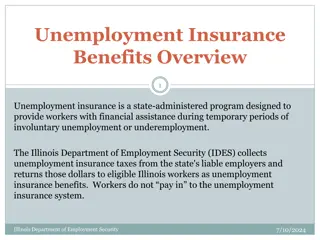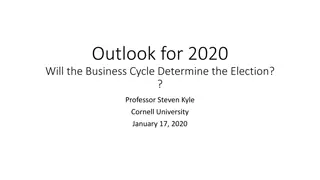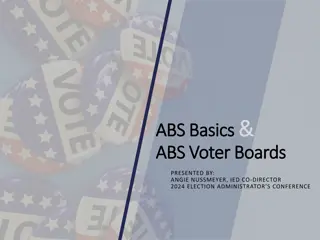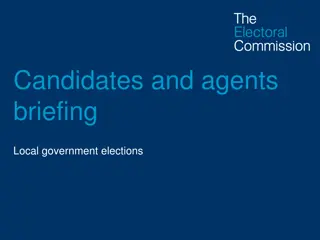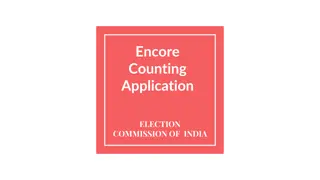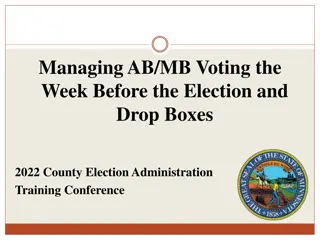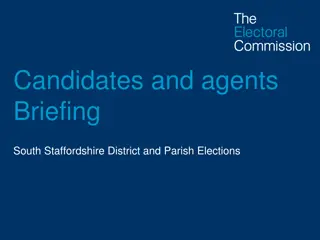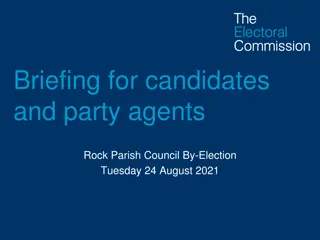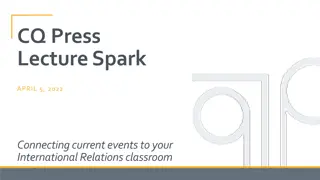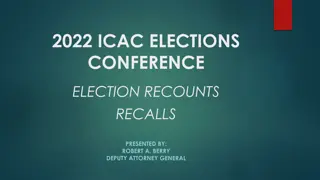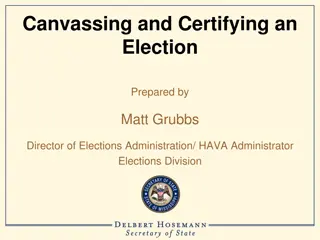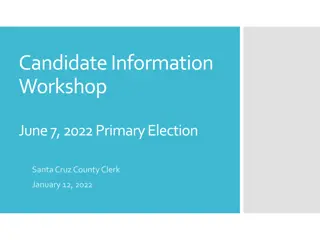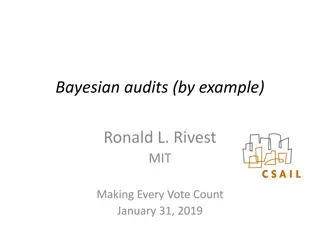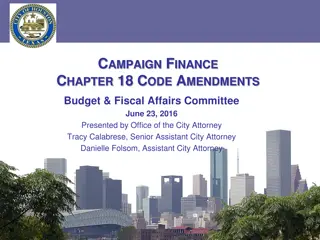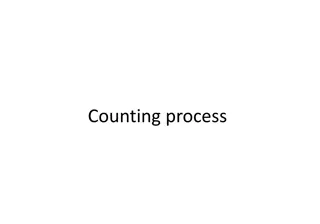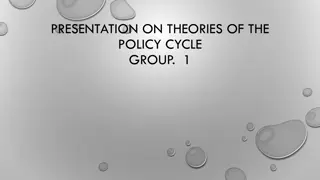Unemployment and Policy Insights for the 2020 Election
Unemployment is set to be a crucial issue in the upcoming November election, with significant impacts on various demographic groups. The COVID-19 pandemic has led to economic challenges, prompting a high number of individuals to apply for unemployment benefits. The study reveals insights into the implications of unemployment on voters and highlights the diverse effects across different segments of the population.
Download Presentation

Please find below an Image/Link to download the presentation.
The content on the website is provided AS IS for your information and personal use only. It may not be sold, licensed, or shared on other websites without obtaining consent from the author. Download presentation by click this link. If you encounter any issues during the download, it is possible that the publisher has removed the file from their server.
E N D
Presentation Transcript
Unemployment and Policy Insights 2020 election Prepared on behalf of Rockefeller Foundation, Bipartisan Policy Center Robert Green, Principal, Pierrepont Consulting & Analytics LLC June 3, 2020
Methodology Pierrepont Consulting & Analytics LLC conducted 1200 online national interviews from May 11 17 2020 among n=1200 U.S. likely voters. The interviews were fielded by Dynata, the world s largest first-party data gathering platform, based in Utah. The overall margin of error is +/- 2.83% at the 95% confidence level and higher for subgroups. Nineteen times out of twenty the overall survey results would not vary more than about plus or minus three percentages points if it were possible to interview all U.S. likely voters.
Unemployment will be a defining characteristic of the November election...
Unemployment is a defining 2020 election issue. Americans, Republicans, and Democrats will be expecting solutions COVID-19 the pandemic may be a big issue by the time voters decide for whom to vote this fall. Similarly, ongoing civil unrest may be a big issue However, we can be certain corona economic carnage meaning unemployment will be a big issue this fall. Among those voters households with employed adults as of March, fully three in ten (30%) have applied for unemployment benefits in recent weeks. There is no known road to return us quickly to where we were mid-March. Corona economic carnage has destabilized millions of workplaces, the vast majority are small, medium, and/or local businesses not well-known nationally Corona carnage discriminates. It falls more heavily on Hispanic, African- American, one-parent, less educated, part-time, work outside home, self- employed people especially those employed in the private sector 4
3 in 10 voters employed mid-March filed for unemployment. Hardest hit are in one parent HHs, minority, younger workers, typically from private sector Since the start of the COVID-19 crisis eight weeks ago, have you applied for unemployment benefits? As of mid-May, applicants were split 50%-50% between those that have gotten benefit and have not Has applied Unemployment 51% 51% Don't think qualify/Too burdensome 30% 41% 37% 33% Have not, still employed 55% 25% 15% One parent HH Hispanic Part time >45 AAs White 85% who applied are private or non-profit 5
Two in five (42%) of all HH have one or more adults who are job hurt : if not unemployed then furloughed, pay cut, fewer hours, unpaid Since the beginning of the COVID-19 crisis in early March, have you or anyone in your household had their work hours reduced, pay cut, had to take unpaid leave, forced to switch to part-time, or became unemployed? (Multiple responses permitted) 80% of part- timers, 76% of one parent HH, and 74% of self- employed are job hurt AAs (54%) and Hispanics (59%) are significantly more likely job hurt than Whites (36%) Job Hurt None of these 58% Types of job hurt 24% 42% 10% 9% 7% 4% 3% Work hours reduced Furloughed Became Unemployed Pay cut Unpaid leave Forced to part time AAs more likely unemployed or are part- timers who have seen hours cut 6
New normal=most workplaces not operating normally. Business at risk Is the place of work you worked at when the COVID-19 crisis started in early March still operating? Operating normally Reduced or limited Closed 45% 30% 27% 13% 17% 51% 37% 46% 46% 45% 30% of voters say some businesses in their communities likely will close permanently 18% Part time Stressed One parent HH Kid Home 7
Job confidence majority tend to be retired or in sectors not threatened to date. But outside-the-home workers, others in doubt If the economy has fully reopened by the end of summer in September, are you very confident, somewhat confident, not very confident, or not at all confident that there will as many jobs and opportunities in your field of work as there was before the COVID-19 crisis? Confident 63% Not confident 47% 45% 41% 40% 37% Work not at home 45+ Reduced Hours Workplace closed 8
Confidence is waning for job hurt millions many thinking hard about what next: Plans A, B, and C
Plan A: savings depleting despite CARES & unemployment benefits in one-parent HH, AA, Hispanic, under 35, job hurt rainy day families If you had to guess, what percent of your emergency or rainy-day savings have you spent since the COVID-19 crisis that started 8-9 weeks ago in early March? Most still have savings 23% 47% 44% >25% of savings 57% 36% 33% 33% 31% 31% 25-100% of savings 20% One parent HH Finance stressed AAs <35 Job Hurt Hispanic Paid self healthcare 22% of voters have no savings at all, they are paycheck to paycheck 10
Plan B: Many econ-stressed would 401(k) borrowing if knew they could. Only one in three (33%) w/401(k) aware of COVID emergency borrowing From what you have read or heard, have the rules changed concerning early withdrawals from a retirement account without paying a penalty? Are you very likely, somewhat likely, not very likely, or not at all likely to borrow against your retirement account due to the COVID-19 situation? Likely to borrow against 401k due to Covid-19 401K early withdrawal rules have changed 64% 57% 24% 50% 44% 401K early withdrawal rules have not changed 35% 43% 33% Don't know Overall Finance stressed Job Hurt Kids at Home Private sector 11
Plan C: One-parent HH and others in job hurt distress consider taking a pay cut - if there is work If offered, would you consider taking a job that pays 10% less than you were making eight weeks ago either because you want to go back to work and or need the money now? 77% 70% 65% 65% 63% 44% Consider a 10% pay cut 56% Not consider a 10% pay cut One parent HH UE Ben Kids at Home >3per HH Finance stressed Fully 91% have gotten CARES, by mid-May 50% who applied unemployment had gotten it 12
On issue of reopening economy, retirees and public sector workers feel the least stress compared to private sector job hurt workers When do you think it will become essential to reopen businesses where you live even if it means some social distancing COVID-19 policies remain in place? Reopen when we can, business concerns should not determine when to reopen Reopen by June 1, any later and a lot of businesses may not come back It's already too late, the economic damage has already been done 32% 31% 34% 34% 30% 46% 37% 52% 30% 43% 41% 39% 38% 38% 29% Part time Private sector Kids at home <35 Fulltime Retired Public sector 13
As a society, where do we go from here voters want radical change!?
C-19 economic carnage: rhetoric aimed at fixing big holes in the system speaks directly to distressed We will be past the COVID-19 public health crisis someday soon. There are three broad choices facing Americans and American communities after this period ends in terms of the social protection and poverty prevention programs run by the states and Federal government. Please let me know which of the following three choices is closest to your view. (See complete language below) 59% 30% 53% 51% 51% Return 46% Update 24% Big Holes AAs Workplace closed One parent HH <35 15
But beyond rhetoric, voters want real and useful pragmatic reforms focused upon employment
1A. Voters of every type especially job hurt want unemployment reform most of all, a system that works, designed for 21st C workplace Most US states are not well equipped to serve people who need unemployed benefits. The web sites are overwhelmed and often no one is available to answer questions. Going forward, after covid-19, the unemployment benefit system should not only be modernized but also made more flexible to cover more workers, such as furloughed workers, freelancers, and independent contractors. Do you think the following would make a real and useful difference in the lives of people you know, sounds like a good idea for people you know but not game changing, probably not be a good idea, or is a terrible idea? Republicans (32%) are just as likely as Democrats (33%) to be applying for unemployment benefits at this time. Many moderate and conservative voters not just engaged many are now committed. Real and useful difference 34% Sounds okay, no game changer Probably not good idea 55% Terrible idea 8% 4% 17
1B. Major modification to unemployment benefit system, similar to Sen. Hawley s proposal, wide bi-partisan support use payroll tax rebates to cover 80 percent of employer wage costs, up to $50,000 annual pay with a sliding scale to cover above $50,000. Employees still get paid by their employers like today. This puts money directly in the pockets of the employees who don t have current work while ensuring the business survives. Unemployment benefits don t ensure the business survives. Likely voters who chose a real and useful difference Real and useful difference 38% Sounds okay, no game changer 46% 45% 44% 42% 42% Probably not good idea Terrible idea 34% 19% 8% AAs <35k One parent HH Hispanic Applied Unemployment 18
2. Professional licensing reform viewed by voters of every type and ideology as a real and useful change. Retired also The covid-19 crisis has taught us that it is time to change state- by-state licensing laws so it is easier for physicians, nurses, med techs, and other useful licensed and certified positions to practice across state lines. Real and useful difference Likely voters who chose a real and useful difference Sounds okay, no game changer 62% 55% 53% 48% 48% Probably not good idea 47% 35% Terrible idea 50% 11% 4% Retired One person HH Liberal Conservative Job Hurt Private sector 19
3. 401(k) retirement savings portability a real and useful difference that fits 21stC workplace. Retirees supportive as well as job hurt Change the tax code to ensure that 401(k) retirement accounts follow workers from job to job so that they are always growing retirement savings. Also make it easier to develop 401(k) type savings plans for people with multiple employers. Likely voters who chose a real and useful difference Real and useful difference 55% 49% 49% 46% 46% Sounds okay, no game changer 43% Probably not good idea 8% 3% Terrible idea Workplace closed Retired Finance stressed Job Hurt 20
4. Extend Family & Medical sick leave: popular with Hispanics, one parent HH, younger voters, and job hurt Also Ds, Rs, and Is As part of the covid-19 crisis, far more employees are now eligible to take up to two weeks paid sick leave or family and medical leave if someone in the household is under covid-19 quarantine. Keep a paid-leave benefit after the corona crisis ends, but create an employer tax incentive so that it is less likely to hurt job creation. Likely voters who chose a real and useful difference Real and useful difference 46% 50% 50% 47% 47% 45% Sounds okay, no game changer Probably not good idea 39% 11% Terrible idea 4% Hispanic Workplace closed One parent HH <35 Job Hurt 21
Strong real and useful difference support across party lines for four policy reforms, consensus-creating Unemployment reform Three in five (61%) Democrats, two in five GOP (49%) and Independents (53%) say unemployment benefit reform would make a real and useful difference in the lives of people they know Licensing reform One in two Democrats (52%), Republicans (50%), and Independents (49%) say reforming licensing laws would be real and useful difference 401(k) portability & multi-job reform: Democrats (42%), Republicans (44%) and Independents (44%) say ensuring that 401(k) retirement accounts follow workers from job to job and also work better for people with several jobs would be a real and useful difference. Only 3% strongly oppose Extend expanded Paid Family and Medical Leave: Keeping a two week paid-leave benefit with employer tax incentive seen as making real and useful difference by 44% of Democrats,35% of Republicans, 37% of Independents. Only 4% strongly oppose 22
Thank You Robert Green rgreen9093@gmail.com 202-321-8000
